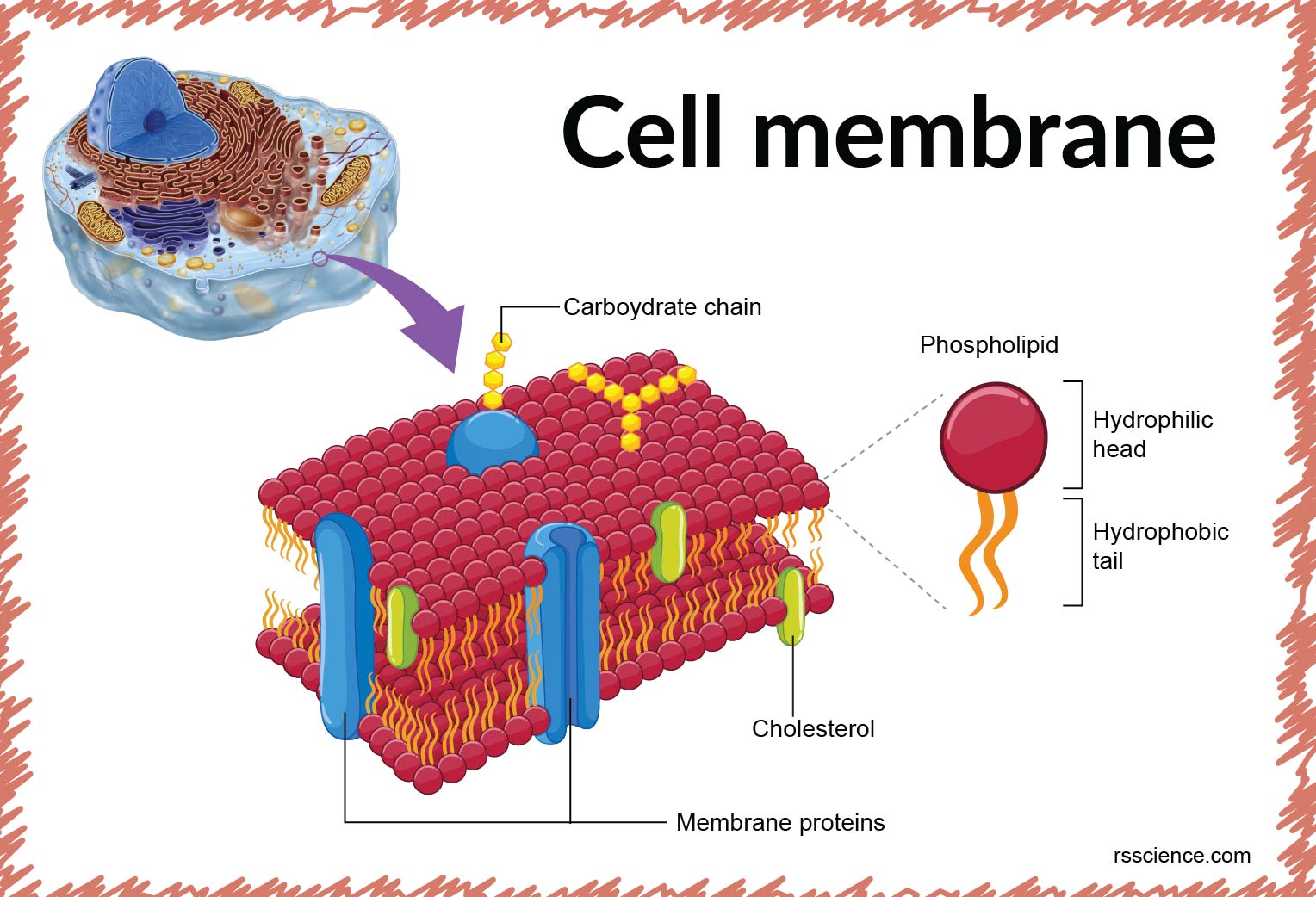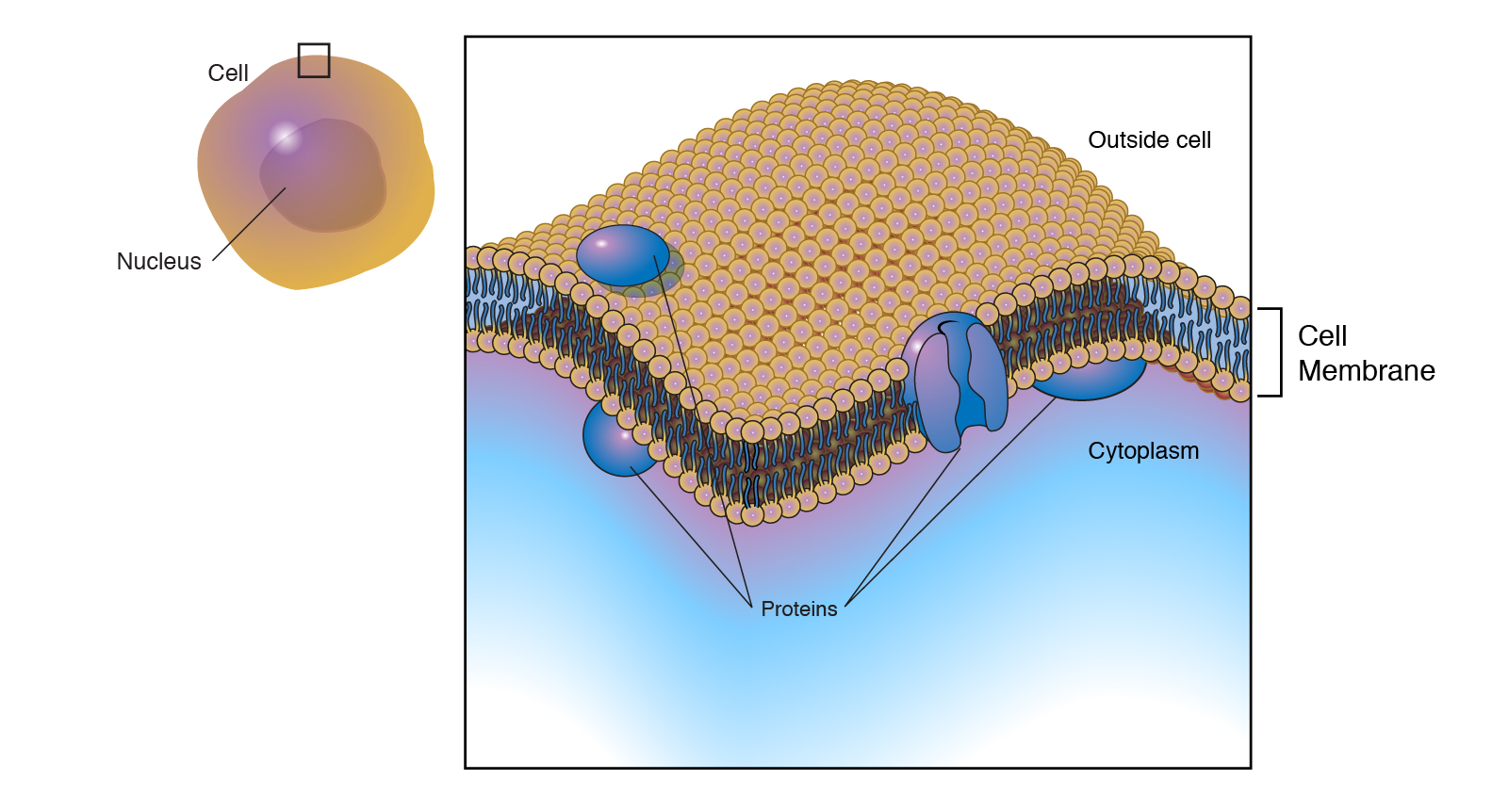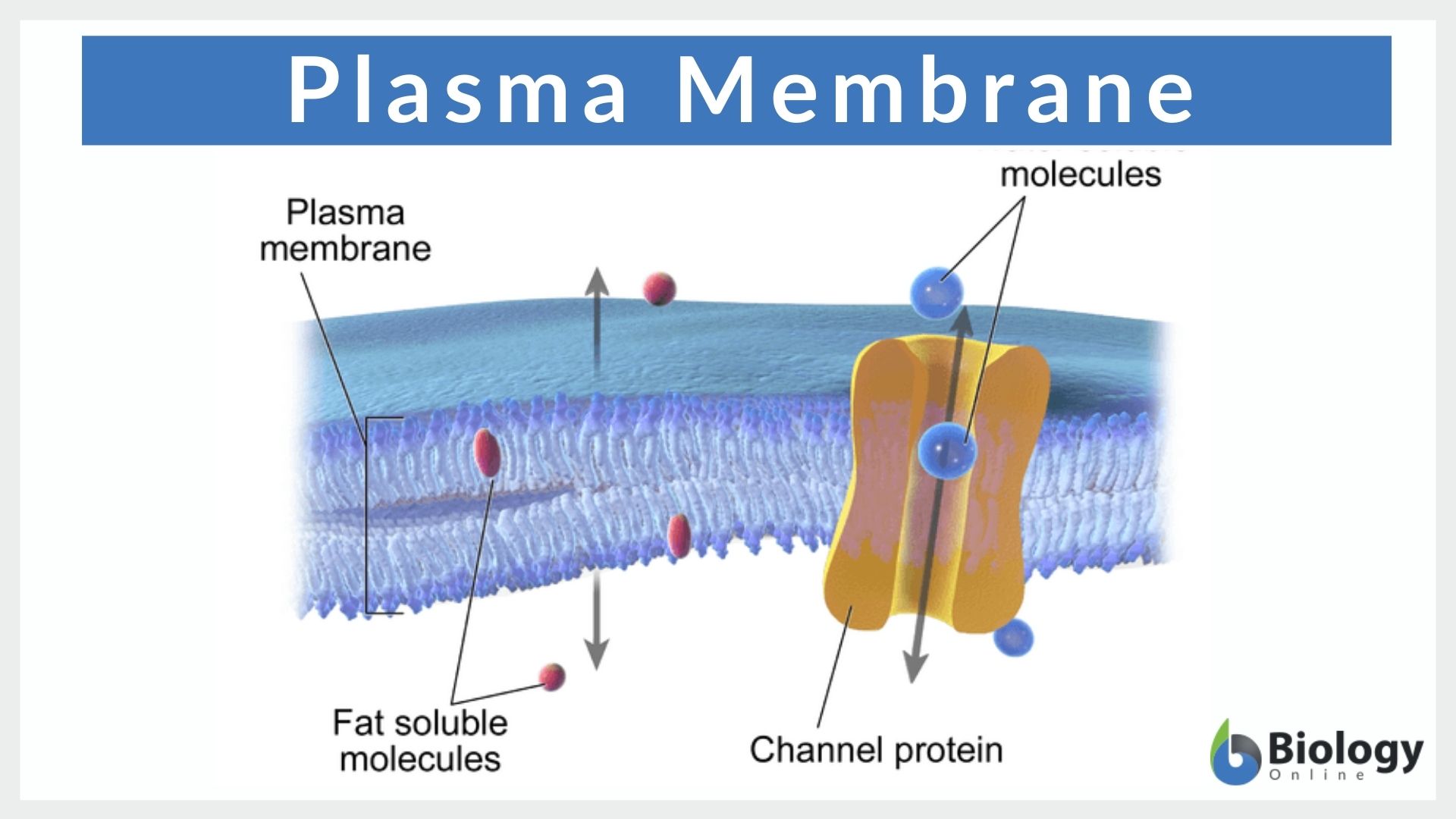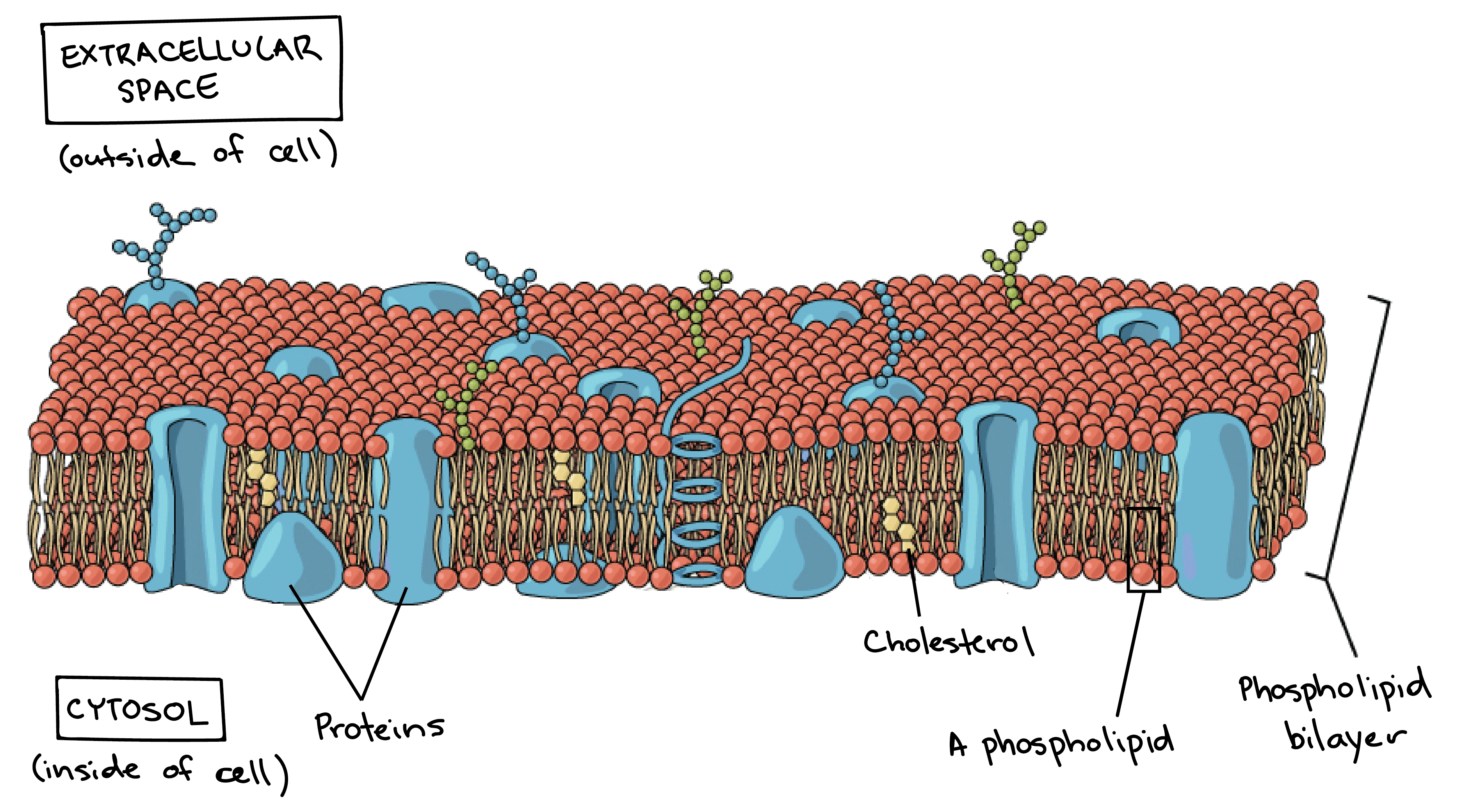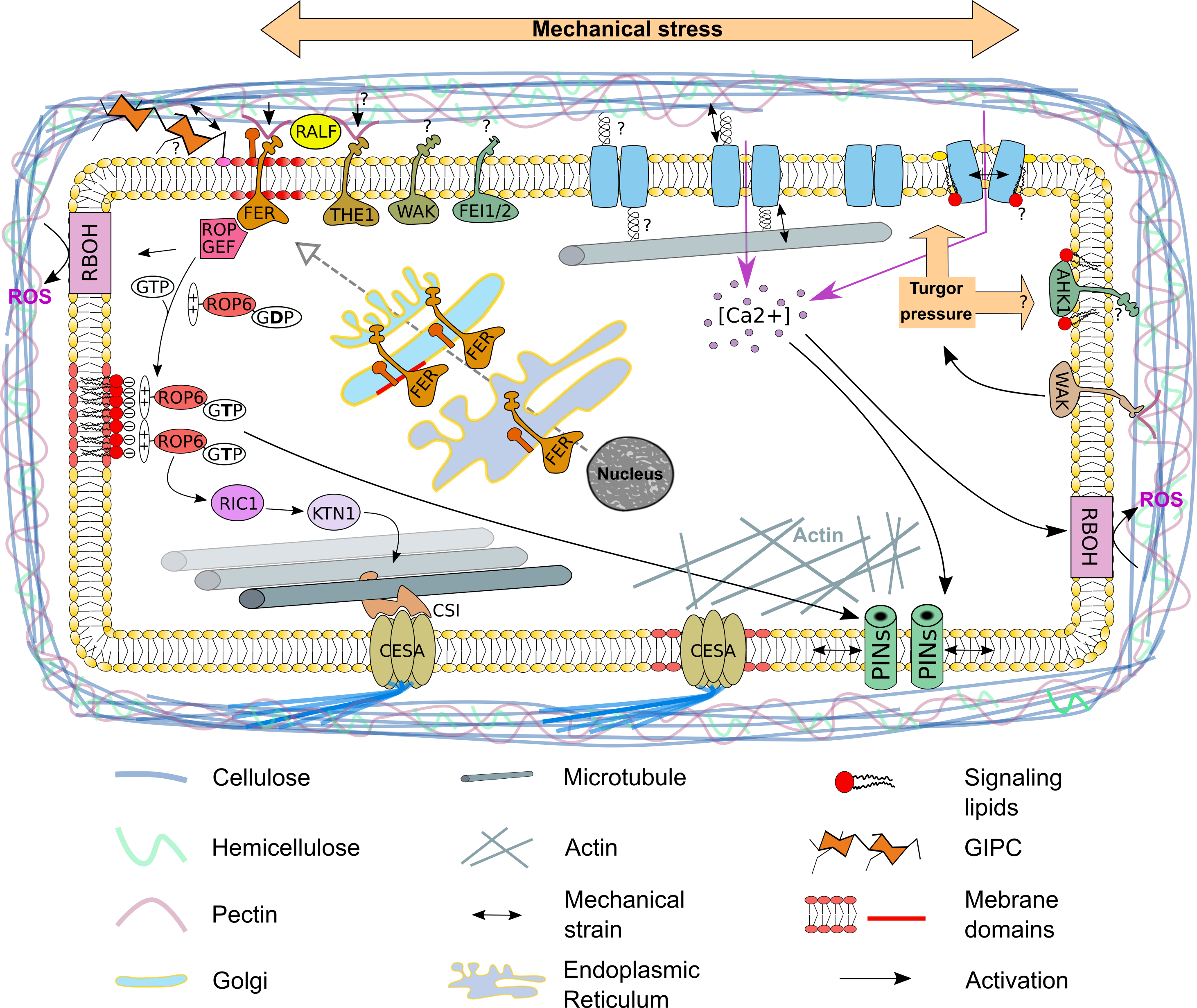Cell Membrane Definition Easy

The cell membrane functions as a barrier keeping cell constituents in and unwanted substances out and as a gate allowing transport into the cell of essential nutrients and movement from the cell of waste products.
Cell membrane definition easy. Plasmalemma or plasma membrane. A cell membrane is a fluid flexible barrier on the outside of a cell that protects it. Most of the small hydrophobic molecules without affinity for water pass through this membrane freely.
The cell membrane is a thin flexible layer around the cells of all living things. A cell membrane is a border that covers every cell in a living organism. The cell membrane consists of a lipid bilayer that is semipermeable.
Cell Plasma Membrane Definition Membranes are lipid structures that separate the contents of the compartment they surround from its environment. A semipermeable limiting layer of cell protoplasm consisting of a fluid phospholipid bilayer with intercalated proteins. Membrane in biology the thin layer that forms the outer boundary of a living cell or of an internal cell compartment.
The cell membrane is a multifaceted membrane that envelopes a cells cytoplasm. Cell membrane definition is - a membrane of a cell. A cell membranes phospholipids and proteins arranged in a bilayer give it semi-permeability allowing some.
The cell membrane is present in all living organisms including plants. Cell Membrane is the second layer in plant cell present below the cell wall while in animal cell it is the first layer. Cell membrane also called plasma membrane cytoplasmic or protoplasmic membrane.
Biology a very thin membrane composed of lipids and protein that surrounds the cytoplasm of a cell and controls the passage of substances into and out of the cell. The cell membrane is a complex system that allows nutrients to enter the cell and waste. Cell Membrane was discovered by Swiss botanist Carl Naegeli and C.
